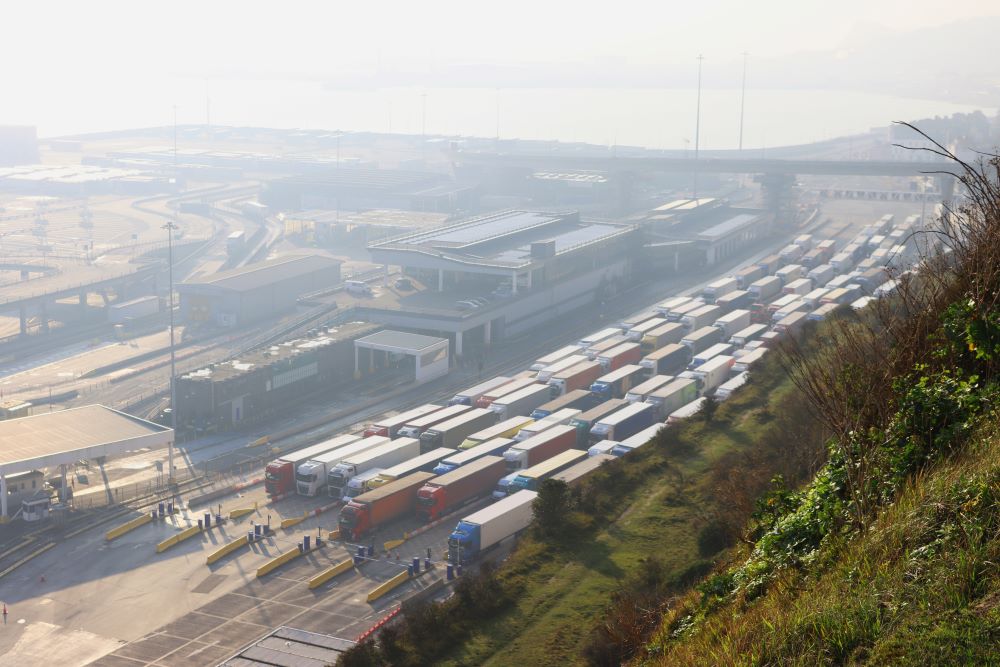
New data suggests that new customs controls on goods entering Britain from the EU, introduced in January, has resulted in a doubling of dwell times at UK ports.
The figures from supply chain logistics firm FourKites, reported in the Telegraph, show that shippers spent an average of more than seven days discharging at British ports last month.
This is an increase from just 3.6 days in April last year and is above the average dwell times at European ports (around 5 days).
Rule changes
Since 1 January, import declarations have been required for all goods entering Britain from the EU at the point of entry.
Hauliers have also been required to submit declarations in advance of their goods movement on the government’s Goods Vehicle Movement Service (GVMS), if carrying goods via ports adopting the ‘pre-lodgement model’, such as Dover.
Not just Brexit
The Grocer reports that port delays are not just due to post-Brexit rules, pointing to teething problems with new systems, a lack of investment in port infrastructure and ship refitting as additional factors.
However, the Port of Dover says new checks are now taking “approximately five to six minutes per vehicle” and the rate of non-compliance is now thought to be in the low single digits.
Not confident
The FT reports a survey of small businesses by training consultancy ClearBorder showing that four-fifths of firms had experienced delays in importing goods since January 2021, and two-thirds had encountered them when exporting.
The survey found that only a third of small businesses were “very or somewhat confident” in the government’s ability to improve import and export procedures.
Supply chain diversification
However, companies have been diversifying their supply chains since Brexit, according to Cornelius Clarke of financial services firm Ebury.
Clarke told the Express that imports from China reached an all-time high in 2021 despite the rise in shipping costs.
He pointed to UK progress in negotiations to join the CPTPP trade bloc and added: “The ongoing free-trade negotiations with India could also present a significant opportunity for UK importers too in lowering costs and barriers to trade with a rapidly growing global economic superpower.”
Growth
Although Brexit has impacted British trade with the EU, the country’s economy grew by 7.5% in 2021 – its fastest annual growth rate since World War II, according to the Guardian.
This growth came after the UK economy suffered a 9.4% contraction in 2020, the year when the first wave of the coronavirus pandemic spread globally.



